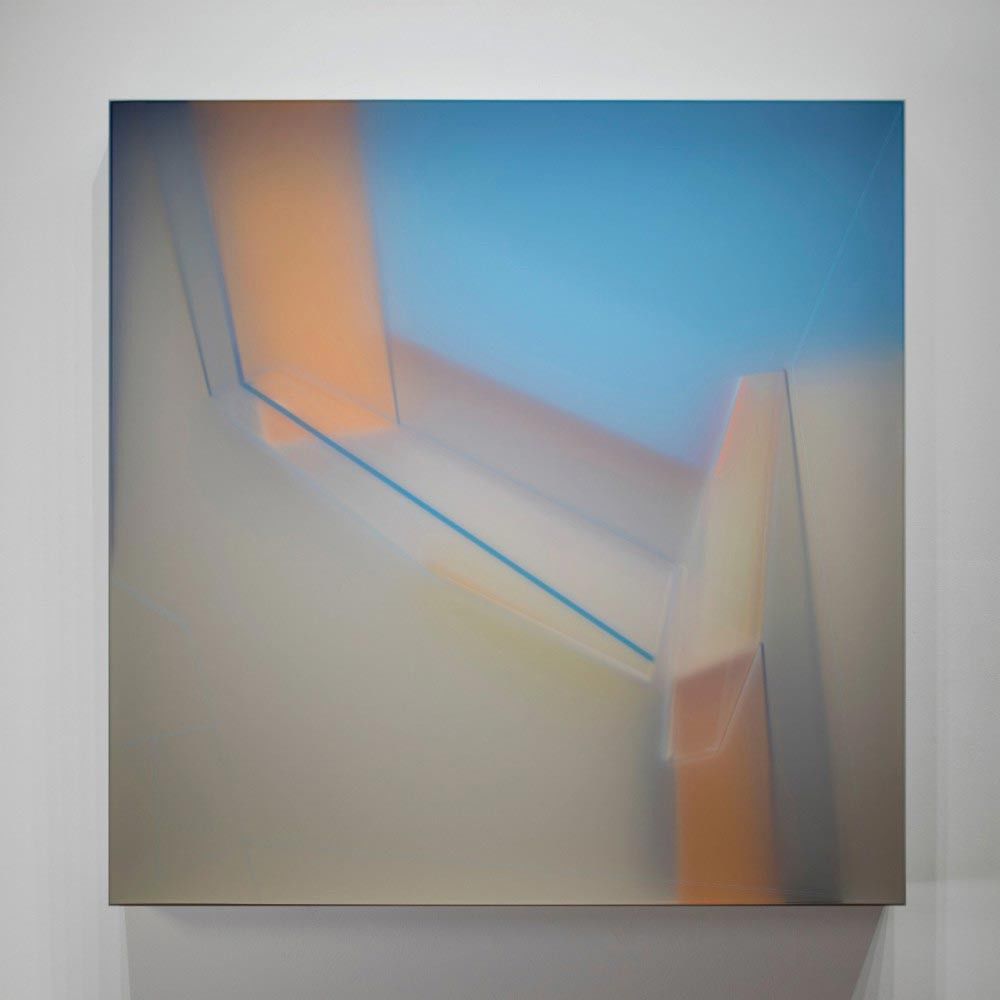More Than A Numbers Game: A chat with Galerie NUMMER40
From October 27-30 the Affordable Art Fair is held for the 10th year in Amsterdam. One of the most active and renowned participants is Galerie NUMMER40 from Doetinchem. For more than 7 years Jeroen Krak and his wife have been on the lookout for upcoming, emerging and established artists.
Gallerease: You are showcasing at 10 art fairs this year and maintain a portfolio of more than 25 artists. How did this start?
Jeroen Krak: My wife and I were starting to collect art more than 15 years ago. Well, it was actually more like buying a few artworks. We had bought graphic work from internationally acclaimed artists such as Corneille and Appel and were interested as well in Scandinavian studio glass. Later on our preference moved to more abstract geometric art from artists such as Klaus Staudt and Haringa+Olijve. During a trip to the United States we came across ceramics from an artist named Michael Wisner. His work is amazing! As a graduated engineer I have always had a preference for natural materials. When I went to Australia on a business trip not much later I discovered the glass art of Hilary Crawford. We still represent her and although she’s not as active anymore we recently sold two of her artworks to the renowned Glasmuseum Alter Hof Herding in Germany. Both my wife and me wanted to share our discoveries with friends and in 2008 we began presenting our newfound art at home.
G: And so a hobby began to slowly escalate….
JK: Well, you can say that again. In 2009 we decided to participate in our first art fair. We were surprised by the positive feedback we received and in that year and the year after we searched for more artists on the rise or otherwise less well-known in Europe. In 2011 we were ready to take it to the next step. We got admitted to larger art fairs and had our inaugural participation at the Affordable Art Fair in Amsterdam. Mind you, we both still had a job next to this! In 2013 I decided this wasn’t what I wanted to do. This was the moment I quit my job and run the gallery full-time. It was ‘now or never’.
G: How did you go from being an engineer to running a professional gallery featuring some of the best talent in contemporary geometric art?
JK: First of all, I read a lot. I love reading about the historical importance of art. The evolution of art as a metier is as fascinating as it is important to the contemporary artists we represent. I followed a few courses that educated me from ancient art right up until contemporary art. Representing artists who work with natural materials such as glass, ceramics, wood and stone is effectively running parallel to my educational background.
Art is viewed upon in two ways; one, from an elitist perspective and, secondly, as ‘the role of art’. Artists in ancient days were artisans, not artists. That might explain why, for example, glass art and ceramics today are still sometimes seen as ‘applied art’.
And second, I have always liked to travel, meet people and explore new frontiers. This was of great benefit building our initial portfolio of international emerging and mid-career artists.
G: It's safe to say that Galerie NUMMER40 is an established name by now. How did you go from a ‘hobby’ to being a household name in contemporary art?
JK: We bring something different to the table. We offer a quite large gallery collection in geometric art, as well as abstract organic art. We feature roughly 25 artists, have 10-15 artists in our running collection and offer changing expositions of other artists throughout the year. All of our artists work with natural materials and some use mixed-media techniques. Every now and then we take a side step by offering new artists a space to exhibit their mixed-media works of art. Recently we are showcasing work from a German artist who combines ceramics with graphic techniques and coming soon, we will exhibit work from a young Dutch artist who uses stylised computer techniques to create figurative glass prints.
Wendy Hannam, #Plan 9
G: With such a collection of both art and artists, exhibitions ánd participating at so many art fairs, how do you see the role of online art fairs in all this?
JK: I strongly believe online will become more important over the coming years. There is an important role for online, maybe even more from a promotional perspective than pure sales. Though it might differ per country and per person. I think Asia and the United States and better accustomed to buying art online than we are here in Europe. But even so, online art platforms such as Gallerease will play an important role as extension for buying art in ‘real life’ and will create important exposure for both galleries and art dealers alike.






